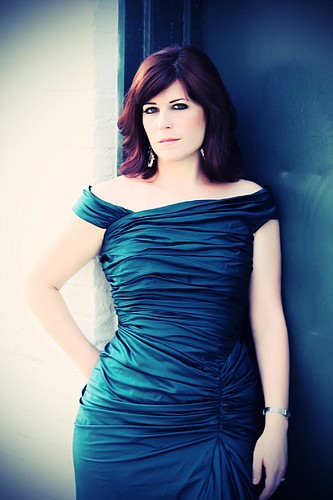- April 24, 2024
-
-
Loading

Loading

I wish all concerts followed the programming three C’s: creativity, color and contrast. The programs Dirk Meyer and the Sarasota Orchestra presented last Thursday and Friday in Holley Hall followed them to the letter.
These were chamber programs incorporating not only an elegant mix of instrumental forces ranging from string quartet and brass quintet to small chamber orchestras, but also making use of the vocal chamber music that is so abundant, multifaceted and beautiful, teeming with meaning, profundity and overwhelming insights.
For reasons I’ve never understood, many people — musicians included — don’t consider vocal music an important facet of the chamber repertoire. And, I’m sure some members of the audience felt these programs were too “modern.” Yet, all the music was written between the late 1880s and first half of the 1900s so, come on. There is musical life after Brahms.
Called “Song Fest,” these concerts were divided between two evenings and were rich in creativity, color and contrast. Thursday’s program opened with Enrique Crespo’s unusual settings of “Three Spirituals.” Set for brass quintet, they were played with exuberance and flair by the Sarasota Brass Quintet and the final, “Swing Low, Sweet Chariot.” Rather than being the lulling song we’re used to, it was turned by Crespo into a rollicking, up-tempo piece straight out of a shoot-’em-up cowboy flick. Surprisingly, it was extremely effective that way.
The Sarasota String Quartet offered a picturesque performance of Turina’s “La oracion del torero” (“Prayer of a Bullfighter”). Not often heard, this is a pleasant, inoffensive piece that makes a few attempts to be programmatic but is, for the most part, simply an unusual work that we probably won’t hear again in this lifetime. The players brought out warm lines showing more of their talents than those of the composer.
Mahler’s “Songs of a Wayfarer” are no strangers to lovers of great orchestral music. The composer later used a couple of them (instrumentally and without words) in his First Symphony, but hearing them with their folk-texts allows us to hear the color and sorrow in which Mahler soaked them. Written originally for piano and mezzo, men often sing them, and tenor Jason Collins delivered the set of four songs with a spinning tone. Unfortunately, there were no translations so, unless one spoke German, the beauty and melancholy of the poetry were lost. Also, Mahler, himself, reset them for voice and orchestra. Then, more than 30 years later, Arnold Schoenberg arranged them for voice and a strange combination of flute (and piccolo), clarinet (and bass clarinet), string quartet, contrabass, piano, harmonium and percussion — an odd assortment, at best, and — for my ears — too thin and insubstantial to support the weighty poetry and rich melodic lines of the singer. I like Mahler’s versions better.
Collins, who is hired often in European houses as a helden (dramatic) tenor, was showcased to much better advantage the following evening when he sang the glorious Serenade for Tenor, Horn and Strings by Britten. Here, with the perfection of Joe Assi’s horn playing and a beautifully cohesive string ensemble led by Dirk Meyer, Collins mastered Britten’s incredibly difficult, breathtaking phrases and seemingly impossibly high tessitura (one section has him singing a high A followed by a B-flat ad infinitum), with amazing colorations and dexterity. Assi was no less impressive; from his singular solo in the prologue to his off-stage repeat of it in the epilogue, as if from a heavenly space, spinning out sounds worthy of the world-class hornist he is.
The other singer on these programs was Blythe Gaissert-Levitt, a charming mezzo with a rich well-controlled voice and personality to match. Her performance of five of Copland’s beloved “Old American Songs” showed beautifully nuanced singing, excellent diction and a nice sense of humor, but two things conspired against her. Meyer allowed the orchestra, especially the brass, to overpower her, sometimes obliterating her entirely, and she was too controlled and too perfect in these alternately funny and moving pieces.
Her work in the sublime “Trois poeme de Stephane Mallarme” on Friday night was just right. Once again, we had no translations — not even an inkling of the meanings of these gorgeous poems — so she might as well have been singing vowels. But, in this instance, the colors of the small instrumental ensemble with the voice as another instrument allowed us to float on Ravel’s impressionistic painting of sound and simply enjoy the Frenchness of it all.
Finally, Friday night’s performance came to a colorful, contrasting conclusion with a brilliantly vibrant performance of Falla’s “El amor brujo.” This is not a work for the faint-hearted. It’s gutsy and guttural, taking us from the Spanish landscape into the swirling, flamboyance of the famous “Ritual Fire Dance,” and Meyer held his forces together with just the right amount of gusto without ever overpowering Gaissert-Levitt in her vocal appearances. Oboist Adam de Sorgo was magnificent in his lines.
If there was one thing missing it was the kind of abandon, from singer and conductor, Falla calls for in this passionate, flamenco-style music. If anything, they were well matched to each other in their prudence and precision. But, sometime, I’d love to hear them both let go, letting the notes drop where they may. Excitement and abandon sometimes are better than perfection.